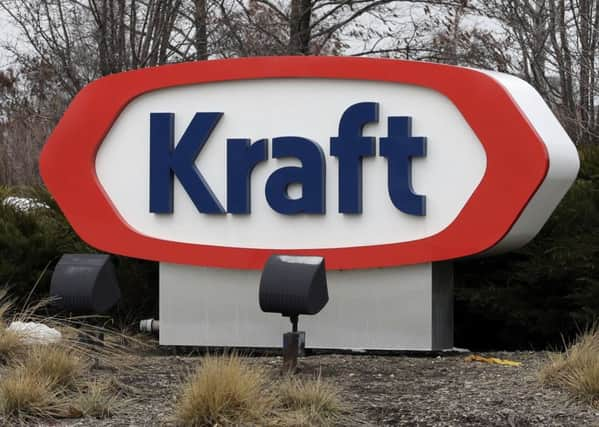Unilever looks inward again after Kraft diversion
This article contains affiliate links. We may earn a small commission on items purchased through this article, but that does not affect our editorial judgement.


Well, that was the phantom leviathan bid that wasn’t, and in little more than 48 hours.
Who was that masked corporate? US food and household products giant Kraft Heinz tabled a bombshell $143 billion (£115bn) takeover offer approach for British/Dutch rival Unilever on Friday, proving that no company is too big for merger attention.
Advertisement
Hide AdAdvertisement
Hide AdBut the American company, backed by Brazilian private equity group 3G Capital and investment guru Warren Buffett, was surprised at the strength of the rebuff. Unilever branded the offer lowball, devoid of strategic logic and insisted there was nothing worth discussing. That was compounded by a whirlwind of pundit comment saying that the proposed marriage of the food giants would be vigorously scrutinised by regulators given their big market shares and geographical reach.
Of course, Kraft Heinz, with a phalanx of investment banking advisors, would have factored in regulatory scrutiny as inevitable, but it was probably counselled that it could be largely defused by stressing Kraft’s main footprint was in America, while Unilever is strongest in the UK, mainland Europe and Asia.
Some brand divestments might well have been identified to sweeten regulators as well. The two companies would have been spoilt for choice.
Kraft Heinz has a panoply of household names including Heinz Tomato Ketchup, Philadelphia Cheese, Planter’s nuts and Heinz Baked Beans. Unilever has a bundle of its own, ranging from Ben & Jerry’s ice cream and Dove soap to Hellmann’s mayonnaise, Marmite, Pot Noodle and Knorr soups. The merger would have been the ultimate “comfort brand” marriage.
But I think, perhaps a bit belatedly, Kraft realised there may be a political dimension to the opposition as well that, even more than usual, would have made a hostile move on Unilever absolutely fraught with risk. Prime Minister Theresa May is said to have ordered officials to look at the deal before it was embarrassingly binned on Sunday (a joint statement from Kraft and Unilever saying they “hold each other in high regard”, which seemed a tad resonant of celebrity divorcees saying they retain respect for each other and love the children (I suppose the kids being the brands in this case).
The Prime Minister promised what seemed like an in interventionist approach last year when she unveiled what she said would be a “proper industrial strategy”. Many took this to imply a “picking industrial winners” approach, and a more protective stance when foreign buyers tried to pick off big British companies.
Politically, it also would have been ticklish that Kraft blotted its copybook with Whitehall in 2010 when, after pledging to keep a Cadbury factory open in Somerdale, near Bath, it did a U-turn after securing a £11.5bn hostile takeover of the UK chocolate business.
This was compounded by Kraft’s then chief executive Irene Rosenfeld declining to appear before the Treasury select committee to be quizzed about the Cadbury takeover. Some MPs raged that it verged on showing legal “contempt” for Parliament.
Advertisement
Hide AdAdvertisement
Hide AdThe City’s Takeover Panel reviewed the laws and, in September 2011, strengthened the hand of target companies, and demanded more information from bidders about their intentions after purchases, particularly in areas such as factory closures and job cuts.
So the latest fast-moving-consumer-goods juggernault, which would have been the second biggest ever takeover after Vodafone’s €190bn purchase of German telecomms group Mannesmann in 2000. is stillborn. The target’s shares jumped 13 per cent when the bid was made public on Friday, but gave up more than 6 per cent yesterday. Where now?
Whenever a major business has had a takeover approach, it usually leads others to sniff the water, but that doesn’t mean it is “in play”. Unilever is a big mouthful to swallow, only a handful in the world would be contenders.
And they would face the same regulatory and political complications as Kraft Heinz did. The upshot, say analysts, is that Unilever boss Paul Polman is expected to redouble efforts to take costs out of the organisation, mainly in back office, manufacturing and distribution.
It says it all about Unilever’s size that one previous chief executive once talked about focusing on the group’s 400 core products, and getting out of non-essentials.
Some believe Unilever will also focus more on household products as it moves forward – a trademark of Kraft Heinz in the past few years – as the likes of detergent and toilet cleaner have better profit margins that most food products.
The “offer” gave us transient, if illusory, excitement, though.